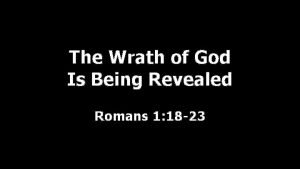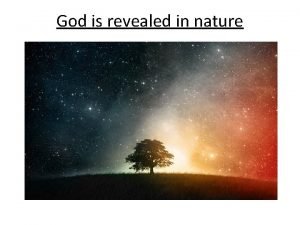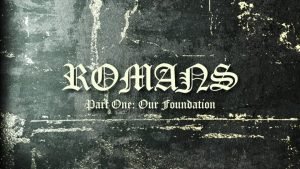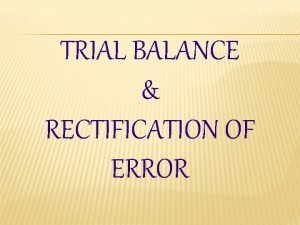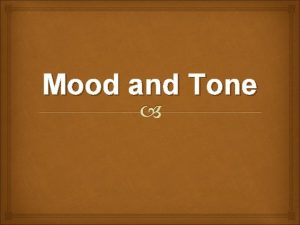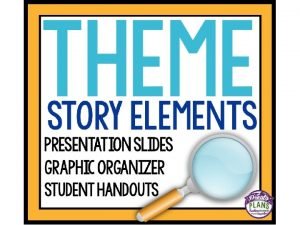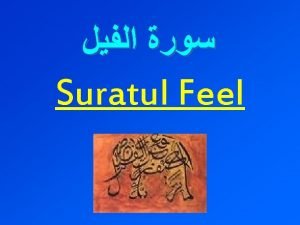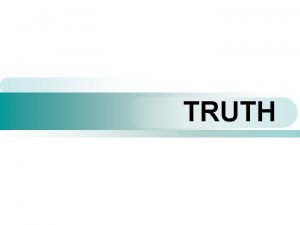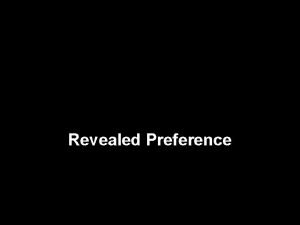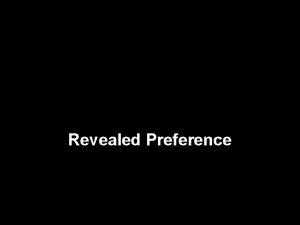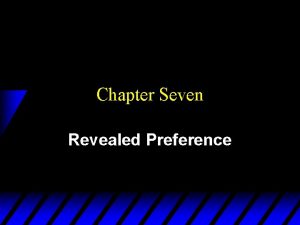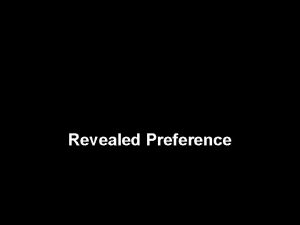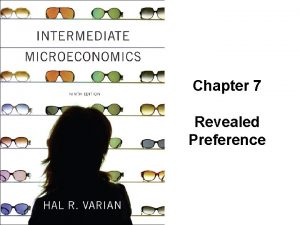C Classification of truth 1 Revealed truth God










- Slides: 10

C. Classification of truth 1. Revealed truth - God recorded and revealed in scripture 2. Unrevealed truth - God established but did not reveal in Scripture 3. Fallacy - any statement not part of revealed or unrevealed truth. 4. Theory - that which is thought to be true, is not revealed truth, but may be part of unrevealed truth. 5. Truth by definition - true because man has defined it.

II. Scientific Method - a logical method of problem solving A. Preliminary steps 1. Define the problem: state the question or problem to be solved. - do not make the question to large. 2. Do preliminary research - research to become familiar w/ that area of science. B. Steps of scientific method - experiment - tailored to answer the problem

- survey - existence of something in a particular area. 1. Observe 2. Collect info, record accurately. - data - recorded information 3. Classify data into logical order 4. Analyze data to determine what it reveals about the problem. 5. Choose the best answer suggested by data

6. Verify - repeat the experiment; more valid and reliable if repeated. 7. Predict - what will happen in similar cases. ***Goal of the scientific method: to draw conclusions that can be applied to similar cases. C. Controlled experiment - two identical groups; difference is a single factor called experimental variable. 1. Control group - group not exposed to experimental variable

2. Multiple variables in a controlled experiment are unacceptable. 3. Fewer variables give more valid (accurate and reliable) results. 4. The more you repeat your experiment the more valid the results. III. Science and the Christian A. Other possible definitions of science: 1. The organized total of man’s knowledge gained through observation. 2. Knowledge obtained through investigation.

3. Man’s efforts to understand God’s creation. B. A wrong attitude toward science is to believe that science is anti-God. C. Proper Christian attitude toward science: 1. Science is the discovering of usable information about God’s creation, science is not inherently bad. 2. Science can be a means of subduing the earth w/o destroying it.

3. Science, by examining nature, reveals more information about God who created it. 4. A proper study of science can be used for the Lord to benefit others. 5. Science provides knowledge that man needs in order to exist on earth. D. Science: Pure and Applied 1. Pure Science- knowledge that scientific activities have produced. A. Research method - using the scientific method to discover knowledge. “Research Scientist”

2. Applied Science - using knowledge gained through scientific activities a. Technical method - “technician” follow the instructions of the research scientist. IV. The Attributes of Life A. Movement - may be locomotion; may be internal B. Growth - organisms grow by assimilation ( assembling the component parts which make up their living material. ) *often the replacement of worn out cells

C. Reproduction - making of another organism which has characteristics and limitations similar to the original D. Comes from similar preexisting life variations E. Similar chemical make-up 1. Organic - contains carbon 2. Protoplasm - living material of organisms. 3. Inorganic - nonliving and have never been alive.

F. Made up of cells - one to many cells G. Irritability - capacity to respond to stimuli H. Requires Energy - animals get energy from food. - plants get energy from the sun. I. Maintain a high level of organization. J. Faces Death - all living things will die. Today thousands of cells in your body will die. V. The living condition A. Physical life
 Revealed truth definition
Revealed truth definition The wrath of god is revealed
The wrath of god is revealed God is revealed in nature
God is revealed in nature For the wrath of god is revealed
For the wrath of god is revealed Diff between trading account and profit and loss account
Diff between trading account and profit and loss account Tone circle literature
Tone circle literature Kulliyyah of islamic revealed knowledge
Kulliyyah of islamic revealed knowledge Theme picture examples
Theme picture examples When is the universal theme of a story often revealed?
When is the universal theme of a story often revealed? Surah revealed in makkah
Surah revealed in makkah What is revealed is condemned
What is revealed is condemned

